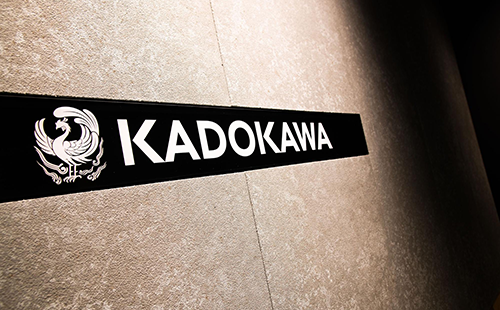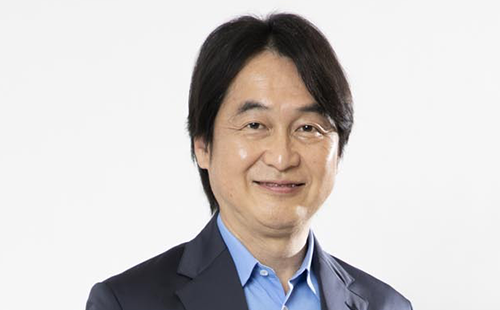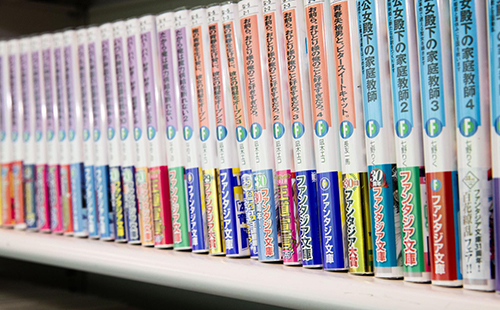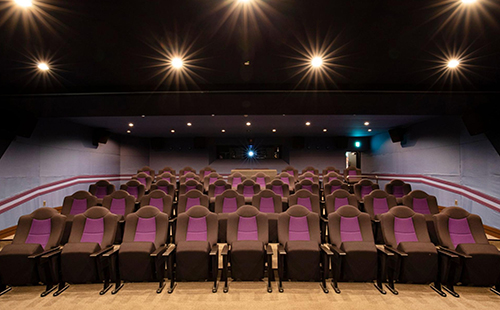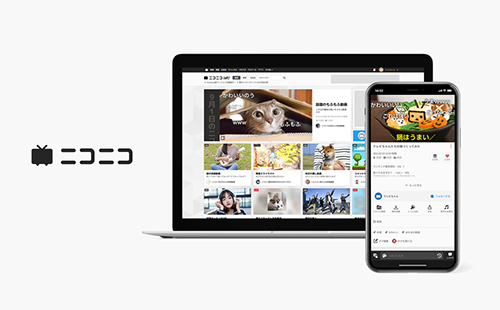2. Human Resource Development
Human Resource Development
The KADOKAWA Group implements career support that respects employees' intentions, initiatives for finding the right person for the right job, as well as a variety of training courses based on the employees’ position and business, to help grow employees skills to actively participate while also demonstrating their own personalities and abilities.
- Career Support and Initiatives for Finding the Right Person for the Right Job
- Strengthening of human resource pipelines
- Skills development training
- Development of Human Resources for Digital Transformation
- Compliance training
- Regular Evaluation Reviews
- Promoting Proposals for New Businesses and Business Improvements
Career Support and Initiatives for Finding the Right Person for the Right Job
The aims of following various systems and initiatives are to enhance employee motivation, create careers that utilize skills, find the right person for the right job, and create new innovation within the KADOKAWA Group.
[Incentive System for Obtaining Public Qualifications]
To support employees’ independent learning and autonomous career development, the system provides financial incentives ranging from 30,000 yen to 10 million yen to employees who have passed an examination for specified qualifications, depending on the difficulty of acquiring the qualifications. The system is used for 139 different qualifications ranging widely from domestic and international MBAs to language, information processing, design, business management, legal affairs and accounting qualifications.
| Target | KADOKAWA's full-time employees, contract employees, temporary employees (shokutaku) and those under a continued employment contract |
|---|---|
| Timing of introduction | Introduced in March 2022 and revised in May 2024 |
[“Free-agent” Transfer System]
Under this system, employees apply for and strive to be matched to positions of interest. The system helps to prevent personnel turnover as it may make it possible to transfer an employee to a department they wish to work in or try a totally different type of business.
| Target | Full-time employees of KADOKAWA and full-time employees of the KADOKAWA Group companies who have expressed their intention to apply for the free agent transfer. |
|---|---|
| Timing of introduction | October 2021 |
[Project Open Call]
This is a system in which employees can propose challenging, medium- to long-term or cross-departmental projects, form teams to realize the proposals and recruit project members in-house. Employees who participate in a project via the in-house recruiting may, in principle, spend 10 to 20% of their working hours on the project. That enables them to take on the new project while continuing with their main work. “Project Open Call” has spawned many different projects. Some of the projects enable employees to try jobs they have never experienced. In one of these projects, an employee who had never worked an editing job took over the entire process from planning to final proofreading. Some other projects involve employees thinking about good workplaces and making them a reality. A typical example of this is “HR Project Focusing on Childcare Support,” a project for revising childcare-related regulations and proposing and implementing new welfare programs. Projects driven by the employees’ love for something or their enthusiasm about it include the “Asia BL Project,” an in-house cross-departmental project focused on the boys’ love (BL) genre of fiction. Project Open Call is also an opportunity to exchange personnel between the KADOKAWA Group companies, project-based practical learning and placing the right people in the right positions on a trial basis.
| Target | KADOKAWA Group's full-time employees, contract employees, special assignment employees, temporary employees (shokutaku) and those under continued employment contract |
|---|---|
| Number of projects implemented | 19 in total (As of March 2025) |
| Cumulative number of participants in the projects | Cumulative total: 110 (As of March 2025) |
| Timing of introduction | October 2021 |
[Side Job System]
This system expands work-style options and supports voluntary career development and is available to all employees. Approximately 5% of KADOKAWA employees utilize this program (as of October 2025).
| Target | All employees of KADOKAWA |
|---|---|
| Timing of introduction | April 2021 |
[ZEN Study]
*Former name: N Prep School Free Course ID Issuance Service
We offer opportunities to study programming and web design to support employee learning.
| Target | KADOKAWA's full-time employees, contract employees, temporary employees (shokutaku) and those under a continued employment contract |
|---|---|
| Timing of introduction | July 2021 |
Strengthening of human resource pipelines
The KADOKAWA Group is dedicated to hiring diverse personnel and has various systems in place to that end, as we believe that diverse personnel will create and support a wide range of businesses.
[Referral-based hiring system]
KADOKAWA recruits employees mid-career via employment agencies or media. In addition, we have a system that enables employees familiar with our worksites to refer personnel. The system is aimed at discovering personnel whose skills and experience are better matched to roles here.
| Number of mid-career employees recruited under the system | 155 (As of March 31, 2025) |
|---|---|
| Timing of introduction | January 2021 |
[Internship system]
KADOKAWA has an internship system for students of graduate schools, universities and specialized high schools in Japan and overseas. The students engage in work for a period of three months or longer. This is not a trial-based job experience program. They are expected to be part of the workforce supporting our content business. The system has enabled many students to join KADOKAWA.
Skills development training
We provide a variety of training programs for employees to acquire business skills, promote understanding among employees about each business, etc. Training programs such as the new graduate follow-up training and newly appointed specialist training are held in line with a training menu co-designed by the personnel division and a personnel development company.
The Company also actively holds in-house seminars and study sessions to enable employees to obtain useful information and knowledge for our business.
[Training Based on Position]
- ●New Graduate Induction Training
The training is provided to all new graduates in April each year. It aims at ensuring that the new graduates understand workstyles, KADOKAWA’s in-house systems, various programs, an overview of the KADOKAWA Group, the company’s business lines, workplace atmospheres and things they should know as a businessperson. Besides taking classroom lectures, the new graduates visit a video production studio, a printing company and other facilities during the training period.
- ●New Graduate Follow-up Training
Held in every February, the training is provided to all employees who entered the company as new graduates in April of the year before. The training focuses on the post-assignment follow-up of such employees. For example, it checks whether they have the perspective expected of a businessperson.
- ●Training for Newly Appointed Managers
Biannually held in the spring and fall, the training is provided to employees who are newly appointed to a managerial-level position. They learn what a managerial-level employee needs to know, such as KADOKAWA's systems and performance appraisal methods.
- ●Training for newly appointed specialist employees
Biannually held in the spring and fall, the training is provided to employees who are newly appointed to a specialist’s position. Inviting lecturers from outside the Group, the training program involves workshops and group discussion in small groups to acquire the knowledge and skills required of a specialist employee.
- ●On The Job Leader Training
Held in July to August every year, the training is provided to employees who are assigned to teaching new graduates. It communicates the aim of developing new employees and the roles of senior employees and shares knowledge and information about new employee training.
- ●Next-generation Leader Training
Biannually held in spring and fall, the training is provided to the internally selected employees. They learn subjects such as business strategy, leadership, finance, business planning and presentation.
< Number of KADOKAWA employees participating training, training hours per person and total training hours (FY2024) >
| Training program | Number of participants |
Training hours per person |
Total training hours |
|---|---|---|---|
| Training for new graduates (New graduates introductory training, new graduates follow-up training) |
41 persons | 158 hours | 6,478 hours |
| Management training (Training for newly appointed managers and professionals) |
117 persons | 14 hours | 1,638 hours |
| On the job leader training | 41 persons | 3.5 hours | 143.5 hours |
| Next-generation leader training | 3 persons | 63 hours | 189 hours |
| Average duration of training per employee | 0.55 days | ||
[Training, seminars, and study sessions tailored to businesses]
- ●Editing and production course
This course is held continuously for the purpose of improving the skills of editors. It is held online on a wide range of topics necessary in the editing and production of publications such as acquisition of knowledge necessary for planning and production of publications, sales promotion and SNS promotion methods as well as copyright and subcontracting law.
- ●System development courses for business divisions
These workshops teach basic tips for avoiding the failure of a project to (non-expert) employees who have recently become involved in new business development or system development within their business divisions.
- ●Study group for press release writing
The editing department operating “PressWalker”, KADOKAWA's press release distribution service, provides lectures on press release creation know-how to Group employees. Key points for creating press releases that will be selected by the media are shared.
In addition, we also offer opportunities to gain knowledge necessary for those who are involved in the creation of media and content. For example, we provide seminars on the handling of rights and music production in the media mix business and also teach topics on human rights, diversity and discrimination.
Some of the KADOKAWA Group’s companies also offer their own original training programs suited to their businesses.
Development of Human Resources for Digital Transformation
We train employees across the entire Group for digital transformation that can promote user-centric reform and to become well informed about digital matters. We do this by instilling consideration for digital transformation and behavioral patterns through the introduction of Activity Based Working (ABW) and support services for Business Process Re-engineering (BPR) and data utilization for our business departments.
We are committed to practically and extensively developing human resources equipped with knowledge of digital technologies applicable in their businesses. For example, Degipro Knowledge Leaders working in both the business division and the advertising digital division share their knowledge regarding the digital promotion of businesses. A cross-departmental data utilization team has been formed to integrate the data possessed by different departments. In addition, business intelligence (BI) tools have been developed to enable employees to use data based on the same indicators.
In addition, we offer a training program on data utilization for Group employees. Many different programs on methods for big data analysis, methods for dashboard development with the use of BI tools, statistics, machine learning and other subjects of data science are provided in an effort to develop human resources equipped with knowledge of data utilization to facilitate data-driven management.
●Data Utilization Lab
Our Data Utilization Lab is a project for achieving synergy between IP creation and technology in our publication business. It involves research and development and the internal communication of information about new data utilization measures from our editors’ perspectives. In addition to supporting the editorial office in the use of data, we also provide readily available tools for editing jobs.
●WinSights Memo
WinSights Memo is an in-house report on information that is useful in the planning, development and marketing of books and services, such as market research and analyses of hit content. We provide this as notes on valuable data that will lead to the identification of opportunities to succeed. Workshops are also organized to explain important points.
●Data literacy training
Highly specialized employees provide a wide range of training programs in accordance with trainees’ aspirations and skill level, from Tableau-based visualization and use of data to hands-on training on advanced analysis using Python.
Compliance training
Based on our compliance policy and compliance regulations, we ensure thorough compliance with laws and regulations and are committed to preventing acts of misconduct such as bribery and corruption, preventing harassment and eliminating ties with anti-social forces.
Aiming to increase compliance awareness throughout the KADOKAWA Group, we are continuously carrying out annual awareness-raising activities through e-learning programs for full-time employees and contracted employees to increase their awareness and enhance their knowledge so that each individual takes ownership of compliance and acts accordingly.
To motivate them to take part, we provide education using both a guidebook that covers what the Company must comply with and animated video content, and conduct tests once a year.
< Outline of KADOKAWA Group compliance training (as of the end of March 2025) >
| Subject | Intended for (number) |
When it is held and how often |
Method |
|---|---|---|---|
| Harassment | Full-time employees and contract employees of KADOKAWA and its domestic consolidated subsidiaries (approx. 6,200) |
Once a year | e-Learning |
| Insider trading | |||
| Elimination of antisocial forces | |||
| Subcontracting Act | |||
| Bribery | |||
| Act against Unjustifiable Premiums and Misleading Representations |
|||
| Information security |
Regular Evaluation Reviews
At KADOKAWA, we carry out evaluations once a year for full-time employees, contract employees with continued employment, and employees on special duty, and twice a year for contract employees. We work to evaluate employees fairly by looking back at the establishment and adjustment of targets and by setting up multiple interviews to provide feedback from superiors.
Our remuneration system directly reflects individuals’ performance irrespective of how long they are in the company, as we place importance on the fairness of remuneration versus performance.
Evaluations of management behavior were introduced in FY2023 to see if managerial-level employees are fulfilling the roles as expected. Besides the top-down evaluation from superiors to subordinates, KADOKAWA conducts a survey named “Upward Feedback” so that the bottom-up evaluation from subordinates to superiors can also be referenced. Meanwhile, an aptitude test named “Attuned” has been introduced to quantitatively determine the factors that will change employees’ motivation. It works to motivate employees, properly assign missions and run an organization.
Promoting Proposals for New Businesses and Business Improvements
To encourage open and autonomic proposals from employees for businesses and improvements, the KADOKAWA Group held an innovation plan contest from 2019 to 2022 in which chief officers and higher executives served as judges to recognize and execute such proposals. Plans awarded at the contest are actually commercialized, leading to the release of QRouton, a service for QR codes* and shortened URLs, and the development of TATESC COMICS, which can be read vertically while scrolling on mobile devices.
The contest helps develop a corporate culture where employees actively propose ideas. Today, we have a system that enables KADOKAWA Group employees to propose new businesses and operational improvements at any time.
[New business and operational improvement proposals]
- ●Global Business Acceleration Program (GAP)
In the field of international business, the “Global Business Acceleration Program” was launched in October 2022 to gather overseas business ideas from across the Group and identify individuals interested in international business. Through seminars and workshops, the program supports the commercialization of projects with global potential.
Since the launch of the program, a total of 68 project proposals have been submitted. As of March 2025, three of these projects have been commercialized, and four are currently under consideration for commercialization.
We have begun publishing “KADOKAWA Masterpiece Comics” and holding the “Wordless World Manga Contest.” The former is a new series adapting masterpiece comics from Japan and beyond as comics, and the latter is a new manga contest open to aspiring cartoonists from around the world.
The “Global Business MVP Awards” have also been established to commend excellent projects from our overseas bases.
By presenting MVP and other awards, the program aims to boost motivation among local staff, strengthen their identity as members of the KADOKAWA Group, and promote understanding of the Group’s strategies and philosophy.- ●Ideathon/Hackathon
DWANGO Co., Ltd. organizes the Ideathon/Hackathon for the KADOKAWA Group’s employees. Employees who choose to gather to discuss a specific theme, share ideas and refine them to implement them as a project. Initially, DWANGO alone held the event, before it expanded to the entire KADOKAWA Group in July 2022. To date, the Ideathon/Hackathon has been held nine times, resulting in the collection of a total of 176 ideas as of March 31, 2025. The themes of the Ideathon/Hackathon widely range from things the employees wish to have to social media, the World Cup, health and gamification. The Ideathon/Hackathon helps employees come up with new plans because it enables participants to experience benefits such as the stimulation of communication to facilitate work, the acquisition of innovative new insights through interactions between the KADOKAWA Group companies and opportunities to experience the fun of making things from nothing.
Online forms, email consultation offices and other features are also available to enable employees to directly submit opinions and questions to the president. They help build an open, innovative environment.
*QR Code is a registered trademark of DENSO WAVE.

